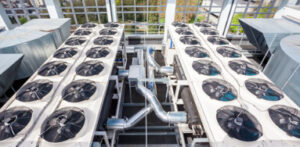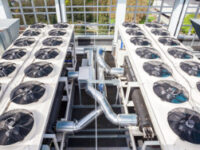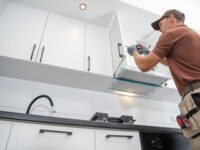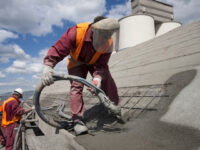How to Keep Your Residential HVAC System Running Smoothly
 Residential HVAC is a collaborative profession where technicians and contractors interact with customers regularly. Average salaries are higher than those in commercial HVAC but can vary based on commissions from selling additional parts or replacements. Residential HVAC technicians at https://comfortprosheatandair.com/ can also boost their hourly pay by selling a new unit to a customer. That is why they need excellent communication skills. SkillCat has an online training simulation to help you hone these skills.
Residential HVAC is a collaborative profession where technicians and contractors interact with customers regularly. Average salaries are higher than those in commercial HVAC but can vary based on commissions from selling additional parts or replacements. Residential HVAC technicians at https://comfortprosheatandair.com/ can also boost their hourly pay by selling a new unit to a customer. That is why they need excellent communication skills. SkillCat has an online training simulation to help you hone these skills.
Residential HVAC systems use ductwork to circulate air throughout the building. They are typically smaller than commercial units and have fewer components. They also have lower upfront costs than their commercial counterparts. The ventilation process is very similar for both types of systems, but there are some differences in the duct sizes, the size of the blower, and the compressors.
A residential HVAC technician must have excellent customer service skills since they regularly work with the same customers. They can build good bonds with their clients, which can help them earn repeat business. That is why finding a company that offers the best possible customer service, competitive pricing, and a great warranty program is important.
Often, the ventilation system in a home will be a split system that includes an outdoor condenser unit (which can be housed in a mechanical room) and indoor air handlers. However, some homes will use a ductless mini-split system, which is more versatile and can be installed in spaces that don’t have access to existing ductwork, such as an attic or a garage.
Some heating and cooling companies offer in-house financing, which can be useful for homeowners looking to replace their old HVAC system with a new one. This type of financing is usually interest-free for a certain period, but it is important to read the fine print carefully and ask questions before signing anything.
Installing a new HVAC system can be a major project for any homeowner, especially if the ductwork needs to be replaced. It is important to keep the work area clear of obstructions, both indoors and outdoors. That means removing items from the attic and trimming any plants that may be in the way.
Getting multiple estimates before hiring an installer is also a good idea, as not all companies are created equal. Some might have poor customer service or a higher replacement cost than others, but spending a little more for the peace of mind and quality of the work that will be done is worth it.
Residential HVAC systems are one of your home’s largest and most expensive features, so it’s important to keep them maintained. Regular maintenance can help you avoid costly repairs and extend the life of your system. Here are some tips for maintaining your system:
Air filters should be cleaned regularly to remove accumulated debris and dust. That will improve the performance of your HVAC system and reduce energy costs. It’s also important to keep the area around your unit clean and ensure that furniture, rugs, and plants aren’t blocking the supply or return vents. That can restrict airflow, causing the system to work harder and lowering efficiency.
A residential HVAC technician should inspect your system and check the overall condition of your equipment. They can replace worn parts to prevent serious problems in the future and recharge your refrigerant if it is low. The technician may also check for leaks and other issues that could cause a breakdown.
While you can do some maintenance independently, a professional is the best choice to thoroughly inspect and fix any problems. A professional can identify potential issues before they become serious, saving you money in the long run.
The HVAC industry is complex and can be confusing for homeowners. HVAC stands for heating, ventilation, and air conditioning systems and includes products like furnaces, air conditioners, heat pumps, and ductwork. It’s important to understand the technical aspects of your system so you can keep it running efficiently and effectively.
HVAC maintenance can include:
- Cleaning the drain line.
- Replacing air filters.
- Examining the system for signs of wear and tear.
- Recharging the refrigerant.
It’s also a good idea to check the programmable thermostat, as this will help to maintain a consistent temperature throughout the day and night.
Many residential HVAC technicians start their careers doing service and repair work for smaller customers. This type of work can be a great way to learn the trade and gain experience in customer interaction and billing. Some companies also offer monthly or annual maintenance plans with priority scheduling and reduced fees.
A healthy HVAC system is the foundation for a comfortable home. It is important to keep up with regular maintenance and repairs to get the most out of your system. Air filters should be cleaned every three months to remove large particles and reduce indoor air quality problems. If you leak into your HVAC system, it is important to address this immediately to avoid mold, electrical, and structural damage. We offer many repair services, including duct cleaning and sanitizing, refrigerant leak detection, indoor coil defrost, and more.
When replacing your HVAC system, it’s important to consult a licensed professional for advice. They can help you fill out these two checklists to determine if it’s better to repair or replace your existing equipment. It’s also important to consider upgrading your ductwork simultaneously to maintain optimal system efficiency. When purchasing your HVAC replacement, choose the right size unit for your property. Buying an HVAC system that is too small or large can increase your utility bills and decrease the lifespan of your new equipment. In addition, it may be worth considering a two-stage HVAC replacement for extra energy efficiency and to protect valuables. Finally, choose a unit with an Energy Star certification to save money on your electric bill.






